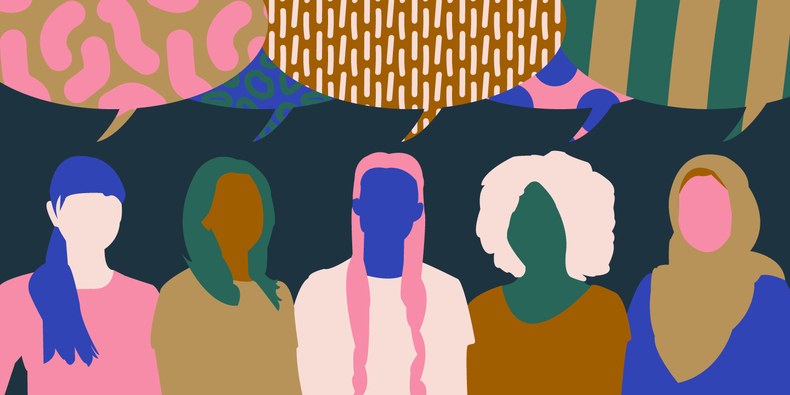
Tamil women are fierce, resourceful, resilient and the glue that keeps culture evolving, fluid and intact, just not in a male prescribed way. My perspective of Tamil women come from first hand experiences—whether it was growing up with a strong Amma, a witty Ammama or interacting with Tamil women in Tamil Nadu and North-East Eelam.
Ethnic identities don’t shape everyone, but they do shape me. To me, being a Tamil woman is more than just a label. I am a first generation Tamil Canadian, the daughter of refugee Tamil mother who fled persecution (for merely being Tamil) and a civil war. My cultural identity and personal identity are interconnected; they’re intertwined and harmonize who I am as an individual.
Tamil culture isn’t immune to misogyny and Tamil women bare that weight daily. We’re conditioned to think that any sort of sexist double standard is engrained into the culture and to an extent, it is. But misogyny is rampant in many cultures, including Western, relying on manmade and enforced interpretations. Without questioning things and working to dismantle the patriarchy, culture will continue to be stigmatized as regressive and be used to manipulate and control people, especially women.
Growing up as a young Tamil girl had its share of obstacles, but for various reasons. For the most part, I think I was fortunate enough to grow up in a more “progressive” than usual household with emotionally strong women. My Amma allowed me to travel; she even funded it when I couldn’t. She’s a full-time career woman and a full-time Amma. She encouraged me to be financially independent and pursue paths that made me happy. And as a result, I had little to nothing to rebel over growing up. Of course, there were battles to be had in between all of these. We clashed over what others in the Tamil community would think or say, we argued about the double standards I sometimes faced in comparison to my brother but at the end of the day, these battles came and went quickly. They did so because she was always willing to listen and understand (sometimes it took the help of my little sister!). My Ammama (though she would fiercely deny it) taught me every Tamil curse word I know. Feminists raised me and I consider myself privileged as a result. It might not have been “perfect” feminism, but it paved the roads for me. Not everyone is that lucky and because of that, there is so much more work that needs to be done to dismantle the false correlation of culture and patriarchy.
Nationalism and feminism should go hand-in-hand but that doesn’t always end up happening. A lot of nationalist men are complicit in putting down feminism while trying to uplift LTTE women, ironically failing to realize that both are related. Many of the men that advocate for justice and a homeland are the same men that put down Tamil women and vocalize their dislike about how they dress, present themselves and so forth. Their nationalism and unity only goes as far as achieving Eelam but never truly factoring in the women that held the struggle and continue to hold our community together. Nationalism doesn’t automatically eliminate misogyny and patriarchal practices unless effort is made into doing so.
The irony is striking because the LTTE was filled with Eelam Tamil women in all ranks. They weren’t just taking orders, they were also on the front lines calling out these orders and leading men and women alike. Many Tamil women were feminists—they are feminists—whether labeled or not. Tamil nationalist men will be the first to point that out when questioned about misogyny in Tamil culture, never truly addressing their roles in it. “How can you dress like that, killing Tamil culture? That’s not what women in the Tigers died for!” Funny how that works, doesn’t it? Morphing the struggles of Tamil women at their convenience, rewriting our stories and tell us what we think or really meant.
To me, Eelam nationalism as a whole is the epitome of feminism. To this day, Tamil women and girls are leading protests on the front lines, demanding their homes and loved ones be returned to them. It’s Tamil women and girls who are calling for accountability and justice. We forget that in the diaspora. We become so clouded by labeling white feminism as intersectional feminism that we detour away from realizing that feminism is inclusive to the Tamil struggle. Feminism helped lead it. While our culture as a whole has a very long way to go in realizing gender equality and sexism (this starts at home), feminism isn’t a new concept to us. It played a huge role in the liberation struggle yet it’s something we struggle with as a community.
Alas, “not all Tamil men” but enough for it to be a problem. Tamil women don’t need to be saved. Tamil women just need to be left to live. Do better, be better.
Image: Martine Ehrhart

























